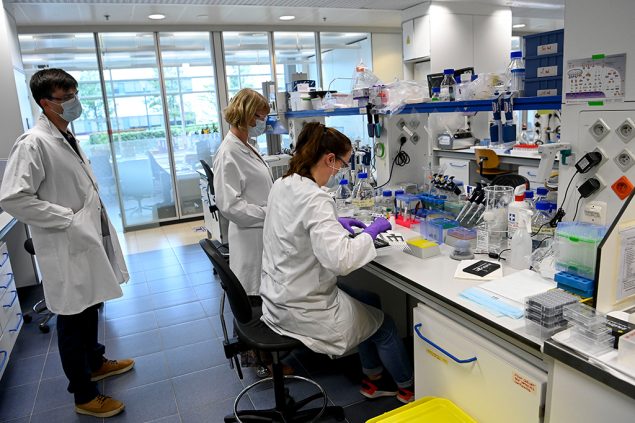The number of cases of severe acute hepatitis, of which the first case was reported in Belgium last weekend and of which the cause is unknown, is continuing to increase across Europe.
In recent weeks, a rare and acute variant of hepatitis — an inflammation of the liver — was detected in children across Europe, including in Belgium, where the disease was first found in a 10-year-old child in Belgium. The cause is still unknown, according to the European Centre for Disease Prevention and Control (ECDC), however, it continues to be reported in various countries.
"As of Wednesday, there are approximately 55 cases reported from across the EU/EEA countries (Austria, Belgium, Denmark, France, Germany, Ireland, Italy, Netherlands, Norway, Poland, Romania, Spain)," a statement from the ECDC read.
A second case has since been reported in Belgium, involving a young teenager who was hospitalised with a liver infection.
"This was a child with acute liver inflammation and high liver values in the blood," Sciensano virologist Steven Van Gucht told VRT News. "The child was admitted to hospital, but has since returned home." Five other possible cases are being investigated in Belgium, meaning it is possible that there will be a few more cases by next week.
"But even then, at the moment it seems to be something that doesn't happen very often, and that's good news anyway." Most patients in other countries were able to recover, but in some cases there was acute liver failure requiring a liver transplant.
In the United Kingdom, which first reported an increase of severe acute hepatitis cases of unknown aetiology among previously healthy children at the start of this month, more than 110 cases have been identified. The ECDC added that sporadic cases have been reported from other countries around the world, including Canada, Israel, Japan, and the United States.
Unknown cause, undefined risk
Although the official cause of the acute variant is still unknown, ECDC director Andrea Ammon told reporters in a virtual briefing earlier this week that the investigations so far pointed towards a link to infection with an adenovirus, common pathogens that spread from person-to-person and most commonly cause respiratory illness.
She added that it is possible Covid-19 and the lockdowns implemented to curb rising infections may have weakened children's immunity, because they were less exposed to common pathogens.
Related News
- Children's painkillers: Pharmacies face unexpected shortage
- First case of mysterious acute hepatitis in children in Belgium
Because the exact cause is not pinpointed for now, the ECDC has stated that the risk to children in Europe cannot currently be accurately assessed, nor can effective control measures be defined at this stage, however, it encouraged countries to "report cases promptly and to update records when more information becomes available."
It also stressed the importance of "reinforcing general good hygienic practices (including careful hand hygiene, cleaning and disinfection of surfaces) in settings attended by young children."
The centre on Thursday published its 'Rapid Risk Assessment - Increase in severe acute hepatitis cases of unknown aetiology in children', which details the event background of cases so far, ongoing epidemiological investigations and options for a response from European countries.
This article was updated at 12:30 to include the second case reported in Belgium.

